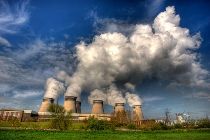US carbon markets still alive despite exchange closure
The parent company of CCX, Intercontinental Exchange (ICE), confirmed in October 2010 it will close the Chicago-based test project at the end of the year. In spite of the proposed scrapping of the Chicago Climate Exchange (CCX), analysts have said that the American carbon market is alive and well.

The parent company of CCX, Intercontinental Exchange (ICE), confirmed in October 2010 it will close the Chicago-based test project at the end of the year. In spite of the proposed scrapping of the Chicago Climate Exchange (CCX), analysts have said that the American carbon market is alive and well.
The CCX was the first US voluntary program for the trading of greenhouse gases (GHG). The firm blamed the closure on a lack of government legislation and the failed passing of the energy and climate bill by the US Congress. The bill would have ensured that a national scheme for trading emissions was put in place.
Some media circles in the US have seen this as the last rites for President Obama's planned cap-and-trade policy on carbon emissions. "Economy-wide cap and trade died of what amounts to natural causes in Washington,' Fred Krupp, President of the Environment Defense Fund, told Fox News.
It is expected that the closure of the US carbon Market will not affect the European or US markets. The head of carbon research for North America at Point Carbon, Emile Mazzacurati, indicated this in an email to BusinessGreen. "The parent company of CCX, Climate Plc, recently acquired in full by ICE, still owns the very successful ECX (European Climate Exchange) and the ECX is operating normally," said Mazzacurati.
Mazzacurati indicated it would not mean the end of carbon trading in the US as there were regional programmes still operating, such as the Regional Greenhouse Gas Initiative, the first mandatory, market-based effort in the United States to reduce GHG emissions. States sell almost all emission allowances through auctions and invest the proceeds in consumer benefits like energy efficiency, renewable energy, and other cleantech.
"This is not even the end of trading for Climate Plc in the US," added Mazzacurati. "Their regular exchange, the Chicago Climate Futures Exchange (CCFE), continues to operate normally." Mazzacurati went on to say, "The effects on carbon markets globally are null, except for the fact that the CCX shutting down highlights the failure of the US Senate to pass a cap-and-trade bill."
In support of this position, Allesandro Vitelli, Director of Strategy at IdeaCarbon, predicated that because CCX was an independent and voluntary programme its closure would not affect other markets. He also said that many of the offsets, such as credits issued against no-till farming projects where farmers leave soil undisturbed, did not represent the most environmentally strong reductions.
Emissions products were first traded on the ECX in 2005 under the EU's Emissions Trading System (ETS) and work on the cap-and-trade principle. The ETS now operates in 30 countries (the 27 EU Member States plus Iceland, Liechtenstein and Norway). It covers CO2 emissions from installations such as power stations, combustion plants, oil refineries and iron and steel works, as well as factories making cement, glass, lime, bricks, ceramics, pulp, paper and board.
Airlines will join the scheme in 2012. The EU ETS will be further expanded to the petrochemicals, ammonia and aluminium industries and to additional gases in 2013, when the third trading period will start.
Author: Leroy Robinson| Climate Action
Image: Foto43| Flickr


_-_frame_at_0m5s_400_250_80_s_c1.jpg)



